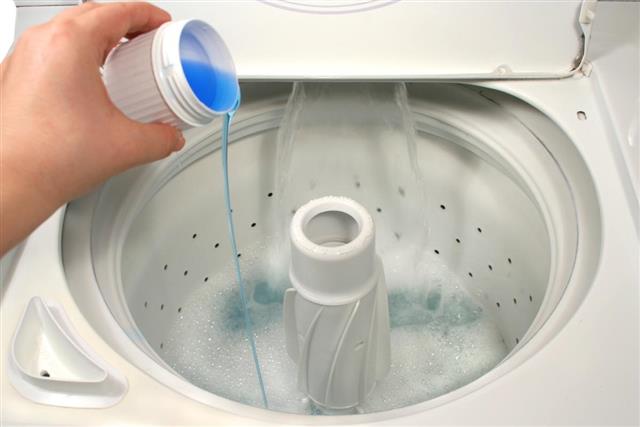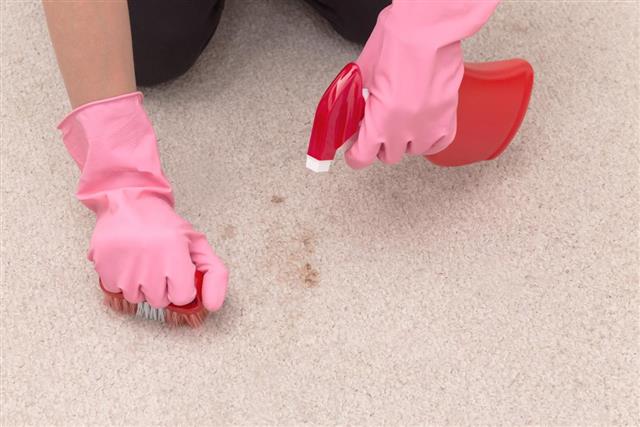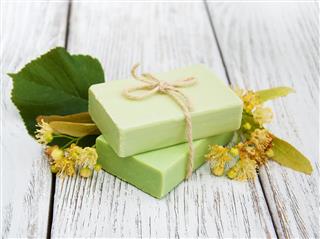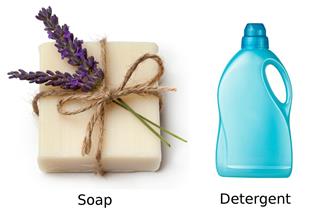
The terms ‘soap’ and ‘detergent’ are often used interchangeably, though both differ in many ways. This article will provide you with a detailed comparison to help you differentiate between the two.
Soaps are used for cleaning purposes since prehistoric times. Then, the process of manufacturing soap was somewhat crude, using animal fat. However, since then, soap manufacturing has undergone a sea change. Nowadays, soaps are mostly made from vegetable oils such as palm, olive, etc. Along with soaps, some synthetic agents are also used for cleaning purposes. Many times, both these terms are used in an interchangeable manner, owing to their common uses. In reality, soaps and detergents are as different from each other as possible.
Soap Vs. Detergent Comparison
Both soaps and detergents are surface cleaners that work by reducing the surface area of water. Usually, water has the property to hold itself when on a smooth, even surface. This property is due to its surface tension. As soaps and detergents reduce the surface tension of water, it spreads out on a larger area. Thus, it can reach dirt and grime in an effective way. In short, soaps and detergents make water even wetter. In spite of this basic similarity, soaps and detergents differ in myriad ways. Given below are some factors that help in clearly distinguishing between the two terms.
Origin
Soaps are always manufactured from natural materials. Detergents, on the other hand, are mostly synthetic chemicals. However, some ingredients in detergents may be of natural origin. Incidentally, these days, many soaps are derived from synthetic agents, rather than natural ones. Nonetheless, a true soap is always made by mixing alkalies (lye) and acids (oils, fatty acids, etc.) in a process called saponification.
Applications
Soaps and detergents have somewhat similar uses. Both are used as popular laundry cleaners. However, due to their stronger ingredients, detergents are used for many other purposes. Detergents may serve as household cleaners for cleaning floors, carpets, upholstery, curtains, etc. Detergents are also extensively used in shampoos, body washes, etc. The use of soaps is however limited to cleaning laundry only. Natural soaps are used for bathing purposes as well.
Preservatives
Soaps contain little or no preservatives. Whatever preservatives are added to soaps are of natural origin only. Detergents, on the other hand, are loaded with antibacterial agents, to prevent them from decomposing. This gives a somewhat unpleasant odor to detergents. To suppress this odor, detergents are treated with numerous artificial perfuming agents.
Efficiency
Detergents are undoubtedly the most powerful cleaners of the two. They can effectively reach dirt and grime and remove them from the surface. Besides, their synthetic laundry detergent ingredients form better suds which drastically reduce the surface tension of water, thereby eliminating all the dirt. Soaps are mild cleaners, hence may not be able to remove dirt effectively.
Hard Water Application
Soaps react with calcium and magnesium ions in hard water to form salts. These salts leave a residue on the surface in the form of scum or scales. If you continue to wash your laundry in hard water, your clothes will eventually have a bluish gray layer on them. Detergents do not produce any undesirable reaction when treated with hard water. Thus, in case you have to choose between soap or detergent for hard water application, then detergent should be your only choice.
Cost
The natural origin of soap makes them more expensive than detergents. Detergents are produced using synthetic agents, which drastically cut their manufacturing cost. Hence, detergents are cheaper compared to soaps.
Environmental Concern
Soaps are perfectly safe from the environmental point of view. There are even some biodegradable soaps available. Detergents may pose a hazard due to their synthetic ingredients.
One should consider the merits and demerits of both these cleaning agents before making a choice. Remember, along with your needs, you should also take into account if your decision endangers the ecological balance or not.




